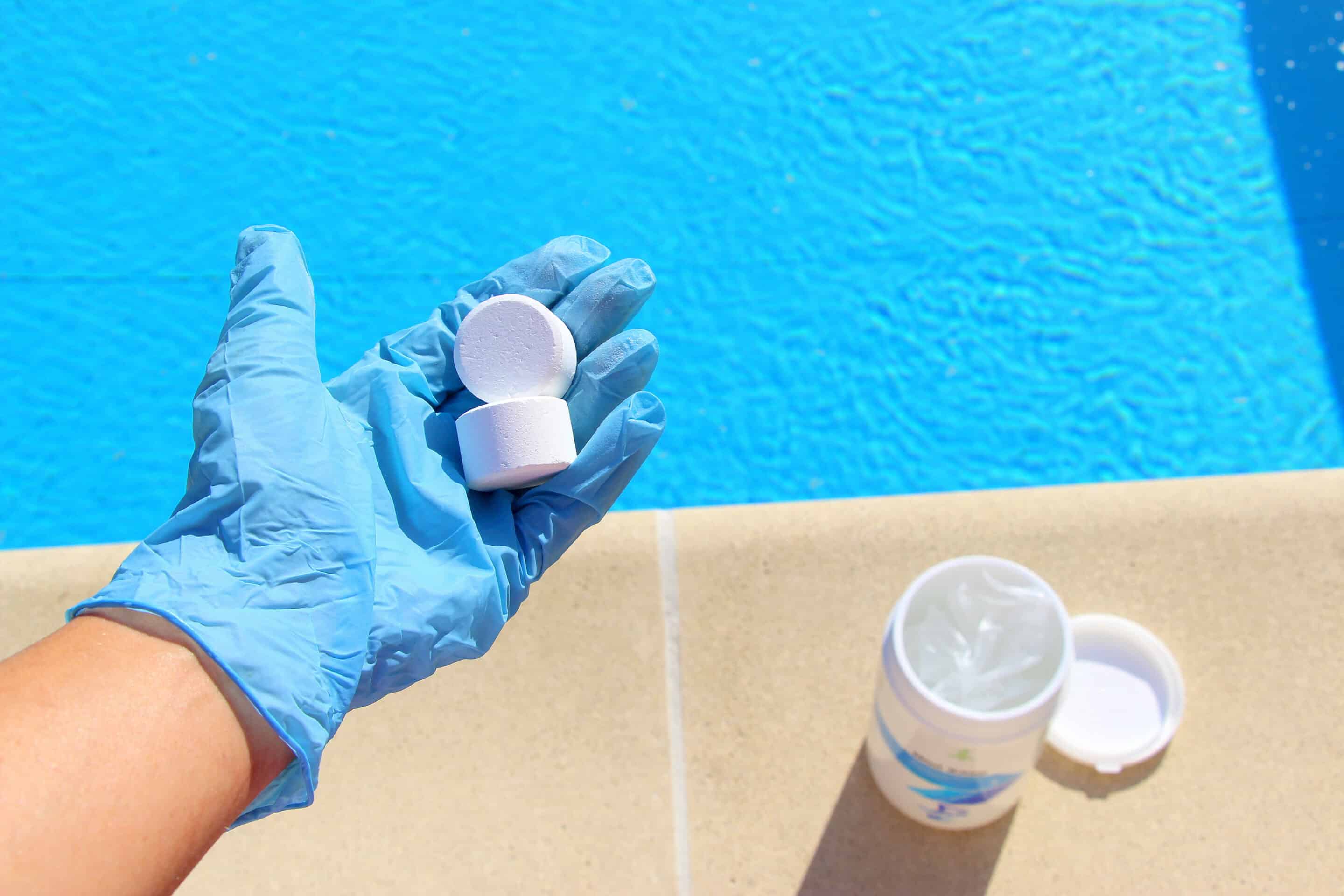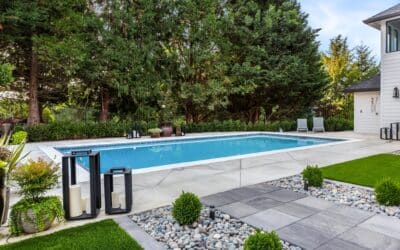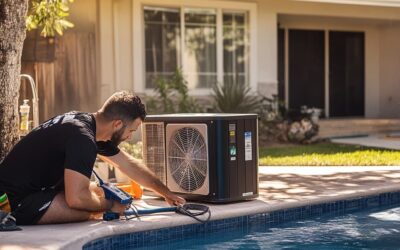Ottawa summers may be short, but they’re all the more enjoyable for those lucky enough to have a backyard pool. Whether you are cooling off after work, hosting a weekend BBQ, or watching your kids splash around, your swimming pool should be clean and safe at all times. Chlorine is the go-to solution for keeping water clear of bacteria and algae, but what exactly does chlorine do in a swimming pool? Let’s dive in.
Understanding Chlorine: The Basics
Chlorine is a chemical sanitizer frequently used in residential and commercial swimming pools and hot tubs. Chlorine disinfects water, eliminating harmful bacteria and algae while keeping the water clear and breaking down oils, sweat, and organic debris.
The product comes in various forms, including liquid chlorine (bleach), chlorine tablets, and granular chlorine. Each type offers different benefits depending on your pool setup and maintenance routine.
- Tablets are convenient for slow, consistent release.
- Liquid and granular forms allow for faster adjustments when needed.
How Chlorine Works in Pool Water
Killing Bacteria and Germs
Chlorine is known for its incredible disinfecting properties. When added to a swimming pool or a jacuzzi, it quickly kills viruses, bacteria, and other microorganisms that can cause diseases and infections.
Controlling Algae Growth
Warm and humid conditions create the perfect environment for algae, quickly turning clear pool water into a murky, green mess that looks uninviting and leaves surfaces slippery and unsafe. Here, too, chlorine comes to the rescue, acting as a powerful algaecide and keeping the pool water and surfaces clean for longer.
Oxidizing Contaminants
When added to the pool water, chlorine reacts with organic impurities, such as sweat, body oils, and other particles. Through oxidation, chlorine breaks down these impurities into harmless byproducts, helping to keep the water clear, clean, and odour-free.
Maintaining the Right Chlorine Balance
Ideal Chlorine Levels
To keep pool water safe and sanitary, free chlorine levels should be maintained between 1.0 and 3.0 parts per million (ppm). At this range, chlorine effectively kills bacteria and controls algae growth without causing skin irritation to swimmers.
What Happens If Levels Are Too Low or Too High?
Chlorine plays an important role in keeping pool water clean, but excessive use can also be harmful. Chlorine levels above 3.0 ppm can cause skin dryness, irritate eyes, and have a strong chemical smell. Not enough chlorine, on the other hand, increases the risk of bacteria buildup, algae growth, and cloudy or foul-smelling water.
To ensure consistent water quality and safety, swimming pool owners must regularly monitor chlorine levels using liquid test kits, test strips, or electronic testers. To learn more about how to ensure that your pool stays swim-ready all season, contact us at Benson Pools!
Factors That Affect Chlorine Efficiency

When it comes to pool maintenance, keep in mind that several conditions influence how well chlorine works in your pool:
- Sunlight (UV exposure). Sunlight breaks down chlorine, but a stabilizer, such as cyanuric acid, can help protect it.
- Water temperature. Higher temperatures accelerate chlorine use.
- pH balance. Chlorine is most effective when the pool pH is between 7.2 and 7.6. If pH is off, even high chlorine levels won’t work properly.
Common Myths About Chlorine
- Myth: You can smell chlorine when it’s too strong.
- Truth: That “chlorine” smell is actually chloramines, a byproduct of chlorine reacting with organic matter. This indicates that more chlorine is needed.
- Myth: Chlorine causes red eyes.
- Truth: It’s not chlorine, but unbalanced pH and chloramines that irritate eyes.
- Myth: Chlorine alone keeps water clean.
- Truth: While chlorine disinfects, filtration and circulation are just as critical for removing debris and maintaining water clarity.
Alternatives and Supplements to Chlorine
Despite several alternative options, chlorine remains the gold standard for pool sanitization, due to its incredible affordability and effectiveness. Alternatives to standard chlorine include:
- Saltwater systems. Saltwater systems convert salt into chlorine through electrolysis – so, technically, they still rely on chlorine for sanitization.
- Mineral systems and ozone generators. These options may be used to reduce the need for chlorine. However, they can’t usually replace chlorine entirely.
Final Word
Unarguably, chlorine plays a vital role in maintaining a safe, clean, and enjoyable swimming environment. From killing harmful microorganisms to preventing algae growth and oxidizing contaminants, it plays an important role in pool sanitization. Get in touch with Benson Pools today to ensure that your pool’s chlorine levels are properly balanced all summer long.


